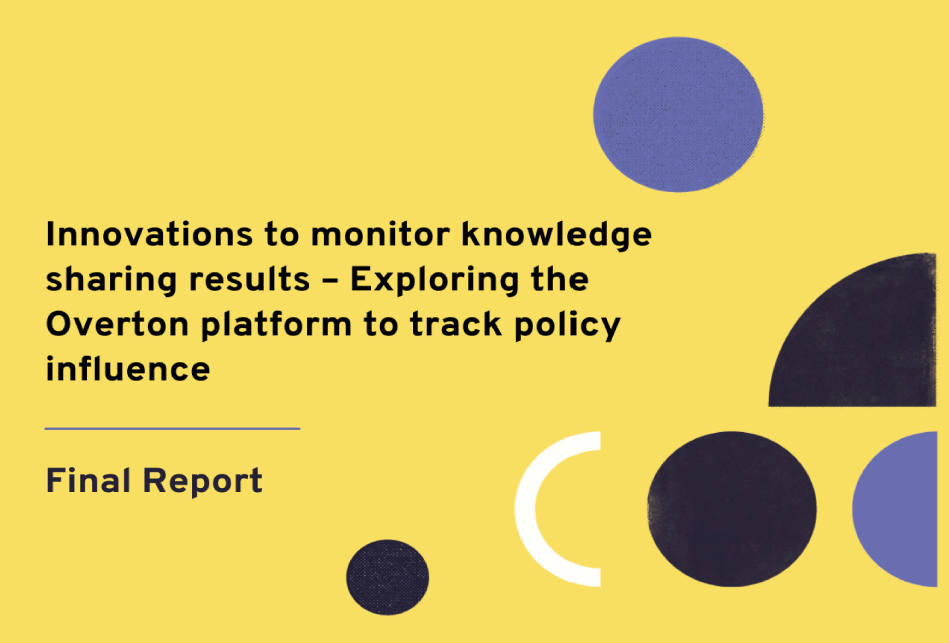Authors: Carla Bonina (Project Lead), Martín Harracá and Lorena Etcheverry,
with contributions from Romina Colman, Noelia Beltramelli, Anna Spinardi,
Bárbara Battistotti and Zinnya del Villar.
This report presents the findings of a research project led by the Iniciativa Latinoamericana
por los Datos Abiertos (ILDA) that explored the use of data and novel online metrics to
understand the influence of Research for Development (R4D) on policy and practice in the
Global South. The project aimed to address the gap in understanding how these tools can be
effectively leveraged to support monitoring, evaluation, and learning (MEL) efforts for
knowledge uptake and policy influence in the R4D space. In this report, we focus broadly on
how research outputs may influence policy formulation and decisions in specific contexts.
The research project had three specific objectives: (1) to identify opportunities and challenges of using policy research metrics, such as the Overton solution, to understand the influence of R4D in the Global South; (2) to understand whether online policy research metrics are capturing useful information and to inform potential improvements to the Overton solutions and others alike; and (3) to consolidate learning and offer practical guidance on how policy metrics can best be leveraged to support MEL for use by R4D funders, knowledge brokers, researchers, and evaluators in the Global South.
The project employed a mixed-methods research approach, including extensive literature
reviews, 15 in-depth interviews with R4D experts, and three case studies covering Latin
America and Africa. The project also incorporated a gender perspective, exploring how policy
research metrics capture gender debates and issues, and whether there is any bias on the
data and/or in the working of the algorithms.
